
In 2012, I had an unbelievably bad day. My father passed away. I will admit, even in my early 40’s, I was still a daddy’s girl. The morning after my dad’s death, I also made a discovery about someone I loved very much, this discovery broke my heart and left me feeling as if my life was in utter chaos. This new information was a huge betrayal of trust and honesty. This time in my life was chaotic and heartbreaking. Separating these two events from one another would be something I would struggle with for many years to come. While I prepared for my father’s funeral, a few things would unfold that would set me on a path of chaos in my life and a very long journey to calmness.
Losing a parent is never easy and I was struggling with this even though my father had been battling lung cancer for many years. The discovery I made about another loved one the following morning would take attention away from the grief that I should have been feeling. The hardest part, though, was still to come. You see, the morning that I was preparing to attend the funeral, the other person, with whom I had discovered this information, called to see how I was doing. I explained that because of what I was dealing with I was not ready to discuss the prior day’s event. This person told me that because of the death of my father, that what I had discovered had not happened. That I had imagined the incident. At that moment, I questioned myself. Was this the truth? Had I lost my mind with the grief I was feeling? Could this be all in my head? In this case, the person would call me back a few days later and admit to me this actually happened, but not everyone is this lucky, and the moments I questioned myself still replay inside my head.
Years later, I would discover that there is an actual term for what had happened that terrible morning. It is called Gaslighting. Gaslighting is when a person manipulates another person into doubting their own reality and their memories. This week we will take a closer look at how gaslighting, even when it is not intentional, can have damaging effects on the person being gaslighted. Let’s explore what gaslighting actually is, how we can make sure we are aware of it, how we can keep others who do this to us in check and make sure we do not do this to others.
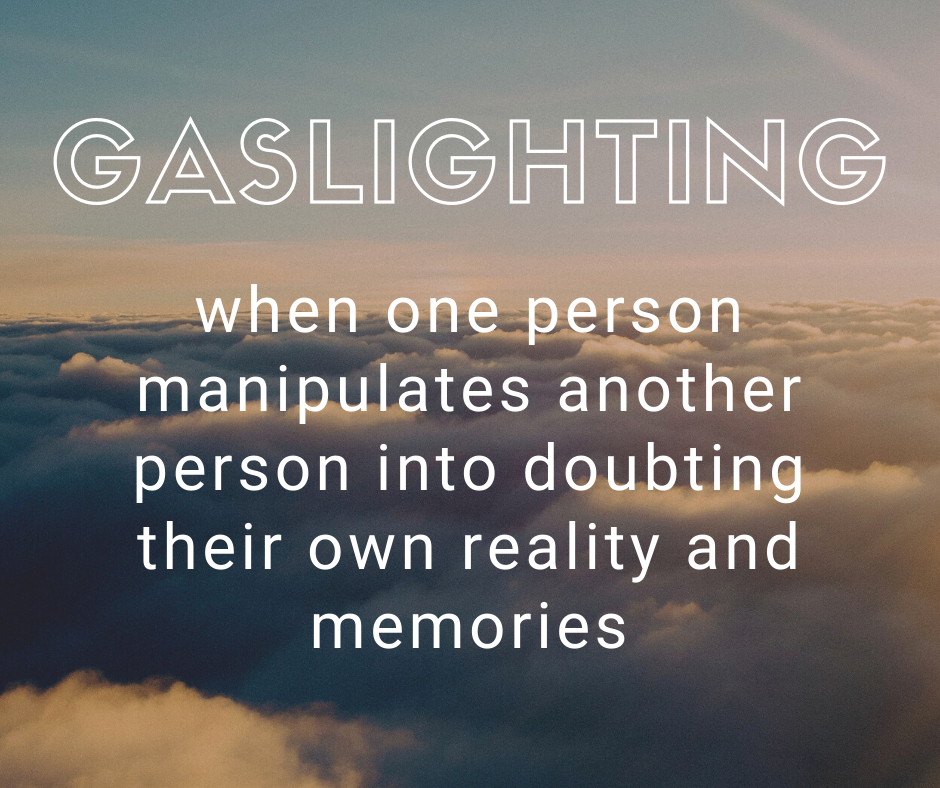
In 1938, Patrick Hamilton wrote a play called Gaslight. In 1944, the play was released as a movie starring Charles Boyer and Ingrid Bergman. The story is about a somewhat naive woman who marries a man she has known for only a short time. For the next 1 hour and 54 minutes, we watch as he manipulates her into believing she is insane. The movie is very disturbing and I will admit, as I rewatched this movie for research before writing this blog, I had to pause it a few times to catch my breath. Charles Boyer who plays Gregory Anton tortures Paula Alquist, played by Ingrid Bergman, by making her think she is stealing items, seeing and hearing things, and imagining the gas lights to be turning up and down by themselves. He intentionally manipulates her environment to make her feel she can not trust her own memories or mind. However, the ending of this movie is inspiring.
(Spoiler alert!)
In the final scene, someone helps her to realize that she is not insane but her husband is evil. She ultimately has a moment to confront him for his behavior. This scene is extremely emotional and moving. Ingrid Bergman went on to receive her first academy award for her portrayal of Paula in Gaslight. A much-deserved award! Some years later, this term would be adopted by doctors in the psychology field to explain this behavior.

According to Encyclopedia Britannica Gaslighting is defined as,
an elaborate and insidious technique of deception and psychological manipulation, usually practiced by a single deceiver, or “gaslighter,” on a single victim over an extended period. Its effect is to gradually undermine the victim’s confidence in his own ability to distinguish truth from falsehood, right from wrong, or reality from appearance, thereby rendering him pathologically dependent on the gaslighter in his thinking or feelings. This requires an elaborate time-consuming scheme by the perpetrator onto the victim.
I have done research on gaslighting numerous times in the past four years. Each time it leads me back to the same question. Isn’t this the same type of behavior that happens when someone is hiding something? An affair? Overspending? A drinking problem? Even just a simple lie could cause the person on the receiving end to doubt their perception if they believed they actually knew the truth. Let’s take a look at the following example
Your teenage daughter goes into your purse and takes $20.00 out of your wallet without you knowing. You go to pay for something at the store and realize you have no cash. Do you not wonder if you dropped the money or spent it? Maybe you never had it in the first place? Maybe you put it in your other jacket pocket? You remember taking the money out of the ATM but what happened to it? Until your teenage daughter admits to taking that cash, you will wonder where your $20.00 has gone. The truth is you took the money out of the ATM and put it into your wallet. That is it. There is no other memory because you never moved it. But for a second, your mind wanders, what did I do with it?

I have discovered that this behavior is even more widely used than I thought. Many times I will be speaking with someone on the subject of communication and they will tell me a story about how they had a conversation with their spouse and made special plans. As the day approaches for the planned event, the spouse suddenly has no recollection of the conversation and accuses them of “making stuff up.”
In another conversation, a wife of 30 years said that her husband tells her “she is being overly dramatic and blowing things way out of proportion” whenever she questions him on his whereabouts, following another late night out with his friends. These events are not quite the same as the movie Gaslight, where Gregory intentionally set out to drive his wife, Paula, crazy. But each one, over time, can cause us to doubt our feelings, memories, actions or timelines. This is Gaslighting, even on a smaller scale.

Now that we know what gaslighting is, I wanted to explore why people gaslight. The first obvious thing that I found was that some people just want to shift blame. If you question them and they don’t feel like, or want to, deal with what they have done, they simply change the facts. They put the blame back on you. If you ask your husband why there is $200 missing from the savings account, he may respond by saying that “you are overreacting, it’s only $200, you know.” He has never actually answered your question but you are left wondering if you ARE overreacting. In another example, a husband asks his wife why she didn’t call when she came home at midnight instead of the 10 pm like she said she would. She responds by telling him that she never said she would be home at 10 pm and that he is remembering things wrong. She has just gaslighted him.
Another reason a person may gaslight is learned behavior. They watched this behavior growing up in a home with an addict or a person with mental health issues. If a child is raised in a home with an alcoholic father, the father will most likely display these behaviors, shifting the blame to others that live in the home. He will also “teach” his children by gaslighting them to lie about the actual events.
Let’s look at this example with little Johnny, who’s 7 years old. He witnesses his parents fighting again about his father’s drinking. The father tells his mother that she is being dramatic and she is upset over nothing. Before little Johnny goes to school, he asks his mother if she is ok. She replies that all is well and what he heard last night was just a bad dream. Johnny is now questioning if what heard was only a bad dream. When asked at school if he is alright, he doesn’t respond that his parents were fighting again last night, but tells the teacher he didn’t sleep well because he had a bad dream. Johnny grows up doubting his memories and goes into denial about his father’s drinking. He never faces the fact that his dad was an alcoholic. Because of this he brings these Gaslighting behaviors into his adult relationships.
Other reasons people can gaslight might be due to an antisocial personality disorder, to alienate the other parent during a divorce, to give themselves power over another person due to low self esteem, to manipulate you so they can control you and finally you may be Gaslighted simply because someone wants to end a conversation so they don’t have to admit to a lie or action.
It is important to remember that no matter what the reason is for gaslighting, even if they are not aware they are doing this, they still are responsible for their behavior.
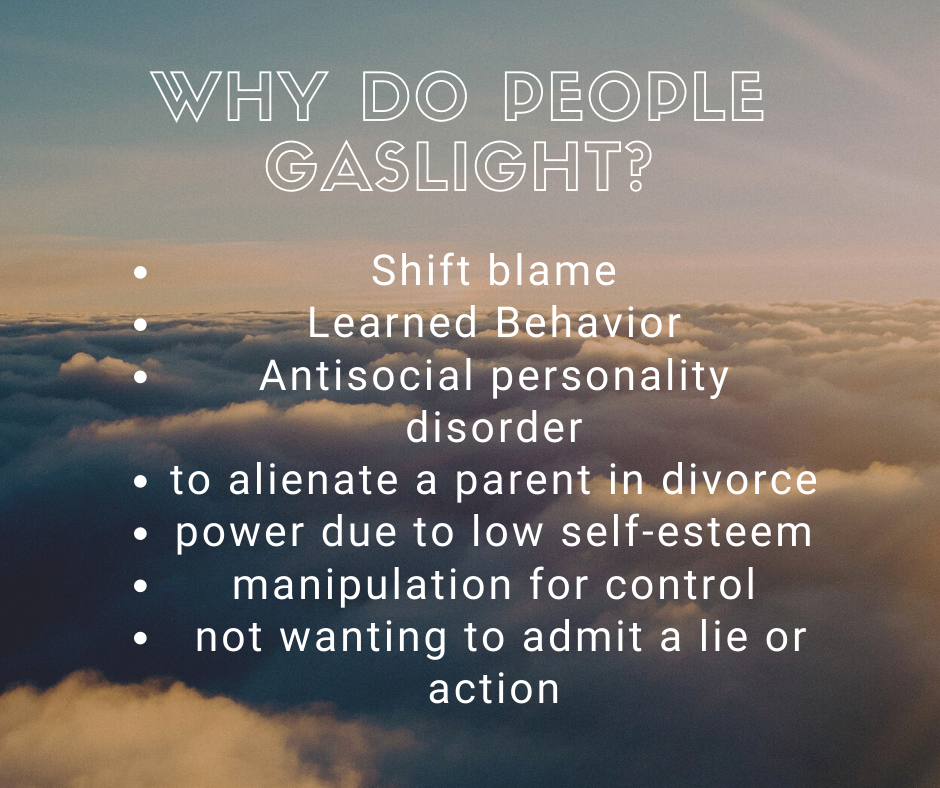
Now we know the what and the why, let’s take a look at how. Gaslighting is a tricky little sucker. It slithers around in our conversations and, similar to passive aggressive behavior, it often goes unnoticed during the actual event. Just like passive aggression, we walk away feeling confused and “odd.” However, Gaslighting leaves us trying to search for memories that we just do not have. Did I lose the money? Am I dramatic? Do I overreact? It makes us question our thoughts, memories and relationships. There is no place in our relationships for gaslighting. We must eliminate this behavior in all our relationships. However, if we are going to put a stop to it, we must learn how to recognize it.
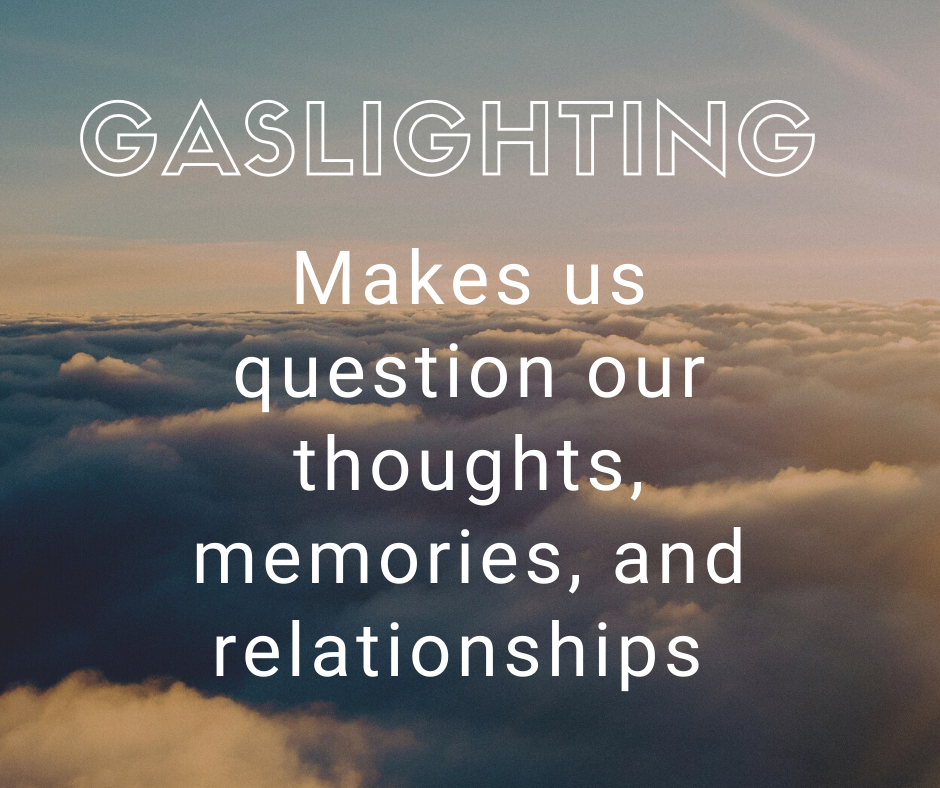
Let us examine some of the ways we may be feeling when we are being gaslighted. Take a look at the following questions and evaluate if any of your relationships make you feel this way. Parent? Spouse? Sibling? Boss or a friend? It has even been proven that some doctors do this!
 The following list of questions can help you evaluate if you are being gaslighted or have been gaslighted in the past. Do you see any of these patterns in your relationships?
The following list of questions can help you evaluate if you are being gaslighted or have been gaslighted in the past. Do you see any of these patterns in your relationships?

This is a pretty lengthy list! Please keep in mind that just because someone makes you feel one or two of these, it is not a foolproof determination that you are being Gaslighted. Before we run off and accuse someone of these behaviors, let’s take a look at what Gaslighting sounds like.
What does Gaslighting sound like? This is an extensive list of phrases that I have been keeping record of in my notes on common terms that Gaslighters use. Take a look at them and take note if you often hear these in any of your relationships.
- You’re overreacting
- You need help
- I didn’t do that
- You’re upset over nothing
- Just calm down
- You’re so dramatic
- It’s your fault
- You are twisting things
- Stop imagining things
- I was just joking
- You’re remembering things wrong
- It’s always something with you
- You’re blowing things out of proportion
- You have mental health issues
- You have a vivid imagination
- You’re just insecure
- This is your problem to deal with
- You were there with us
- You have issues
- They are lying
- I don’t have time for this
- Here we go again
- You’re upset over nothing
- I am not that type of person
- You’re paranoid she/he is just a friend
- I do not sound like that
- I would not have done that
- You just didn’t understand me
- Stop being so sensitive
- You’re reading to much into this
- You would never survive without me
- It is all in your head,
- Stop being so insecure,
- I didn’t say that YOU DID.
Did you recognize any of these? I know it can be a little disheartening to suddenly realize that someone in your life is exhibiting Gaslighting behaviors. But let’s not lose hope! There are ways to tackle this!
How can we stop Gaslighting in its tracks? I have put together a list of common Gaslighting phrases and strong statements we can use to stop Gaslighting. When you are reading this take note of the phrases, I am allowed to feel the way I do, I see things differently than you, My feelings are valid, I am not okay with this; and words such as confident, allowed, valid and differently. Each of these are strong statements, show certainty in yourself and speak of empowerment, not powerlessness. When caught in a Gaslighting situation where you are unsure of what to say, any of these statements will work.

The following are examples of ways we can tackle certain phrases head-on. I know this is an extensive list but let’s really look at how we can handle these Gaslighting statements in the actual moment.
- You’re overreacting– I am allowed to feel the way I do. Just because I see this differently, does not make me wrong.
- You need help– I may see things differently than you. I do not need help.
- I didn’t do that (say that)- I am confident that this has happened. We may disagree but I am entitled to address this.
- You’re upset over nothing– I am allowed to feel the way I feel. My feelings are valid.
- Just calm down– I am upset. I am allowed to be upset.
- You’re so dramatic– I may see things differently than you but that does not make me dramatic.
- It’s your fault- I am not responsible for your actions.
- You’re twisting things– I am confident in my memory of these events.
- Stop imagining things- I am not imagining things. This is how I know it happened.
- I was just joking- What you are joking about is not funny. It is insulting and I am not ok with it.
- You’re remembering things wrong:– I am confident in my memory and the chain of events.
- It’s always something with you: We may feel differently but I am allowed to bring up things that I feel need addressing.
- You’re blowing things out of proportion: I am not blowing this out of proportion. I am allowed to feel this way. My feelings are valid.
- You have mental health issues- You will not question my mental health. That is unacceptable. I am not ok with that.
- You have a vivid imagination: I am allowed to see things the way I do. I am confident that this is the way it happened.
- You’re just insecure: I am not ok with you saying that to me. I am confident in my feelings.
- This is your problem to deal with: I did not cause this issue. I will not be responsible for it.
- You were there with us- I know exactly where I was and I was not with you. I am not ok with you saying otherwise.
- You have issues– .I am not ok with you questioning my mental health.
- I don’t have time for this– I understand you are busy. This is important to me. We need to make time.
- Here we go again- I am allowed to address issues. My feelings are valid
- You’re upset over nothing– I am allowed to feel this way. My feelings are valid.
- You’re paranoid she/he is just a friend- I am allowed to address this issue. We may not see things the same. My feelings are valid.
- I would not have done that– I may see things differently than you. My feelings are valid
- You just didn’t understand me- If you do not think I understand you, communicate with me. Do not dismiss my feelings.
- Stop being so sensitive- I am allowed to feel the way I feel. My feelings are valid
- You’re reading to much into this- I am allowed to feel the way I feel. My feelings are valid.
- You would never survive without me– That statement is insulting. I am not ok with it.
- It is all in your head– I may see things differently than you. My feelings are valid
- Stop being so insecure- What you are saying is insulting. I am not ok with it.
- I didn’t say that YOU DID– My memories are clear. I am not ok with you saying otherwise.
What if you see these traits in yourself or recognize that you say these things? If you find yourself doing this to someone else, intentional or unintentional, You Must Stop. When we gaslight someone, we force them to search for memories that do not exist, we force them to question their realities, their memories and their feelings. We as adults must face our mistakes and the consequences of those mistakes. Lying, embellishments, leaving out facts, denying, or invalidating have no place in healthy relationships. Even if you do this unintentionally, you are responsible for the damage it does to other people. You are now aware of how this process works and that it is damaging to every relationship in your life. Just stop.
As we gain knowledge of behaviors like gaslighting. We can stand on the chaotic shores and see through the clouds of the storm. Now that the veil that has lifted on a once clouded behavior, we can recognize when we are being gaslighted. It is important to stay strong! Do not feel that you have no way to counter this behavior. We must learn to trust our feelings and memories! You know what you know and do not be convinced otherwise. We may have been confused before but now we have new tools! We can come out of the chaos of gaslighting and walk strong with our calm. Trust your feelings and instincts! Know that you are worth more and no matter what the other person says, do not be influenced to doubt yourself. That is what they want you to do and next time, they are not going to win!


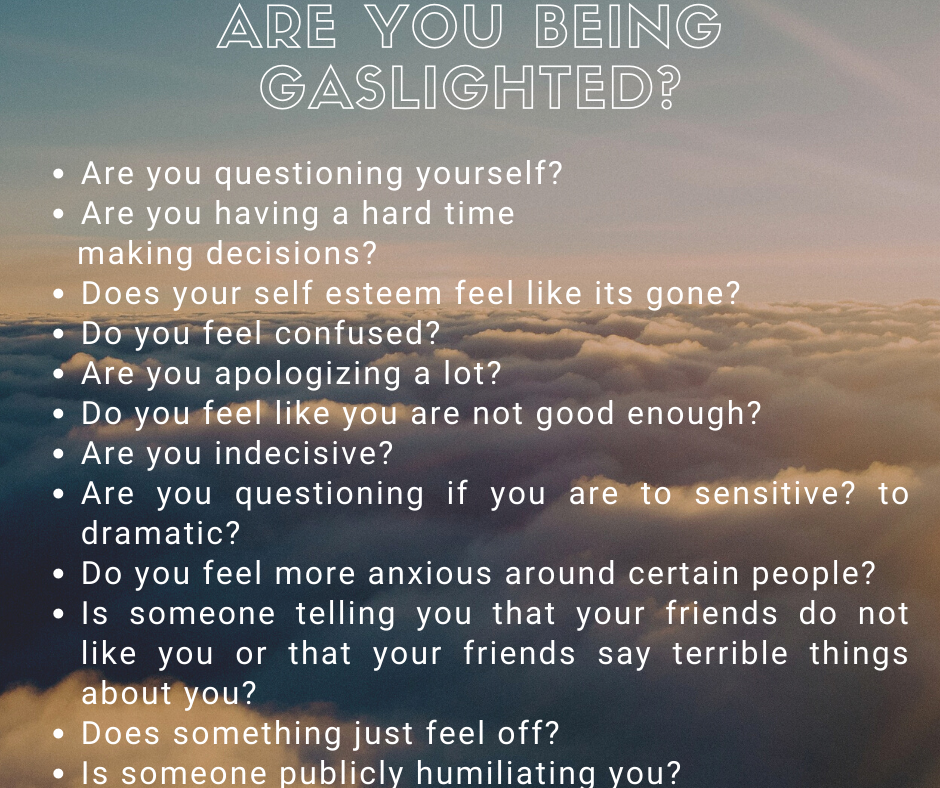
![]() To Stop Gaslighting in its tracks:
To Stop Gaslighting in its tracks:



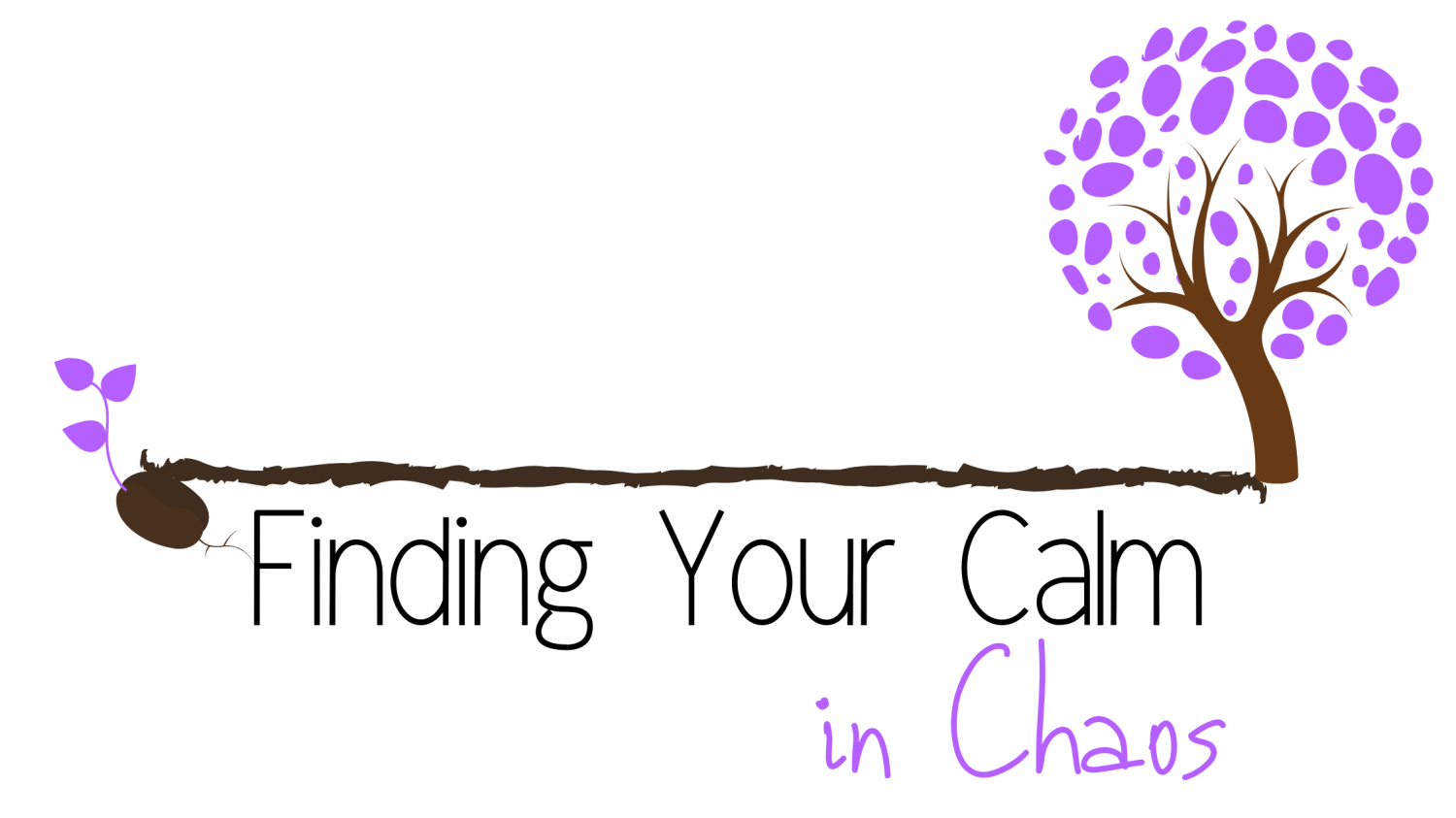


WOW! This is so enlightening and therefore, empowering. Thank you so much for not just telling us what it is but HOW to address them. I love this.
LikeLike
Thank you!
LikeLiked by 1 person